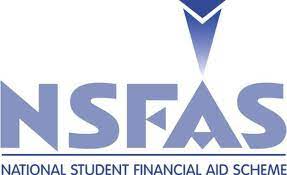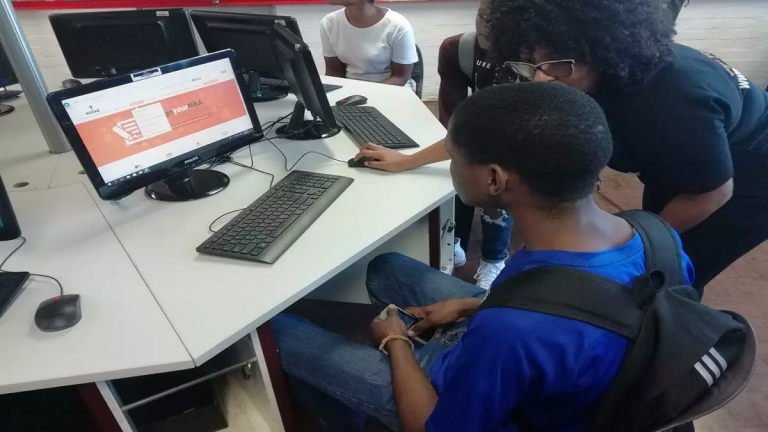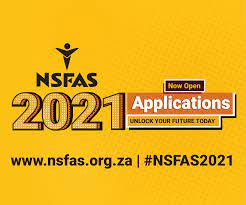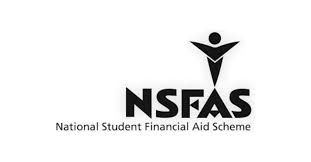How to Apply NSFAS Application 2026 – Simple Steps to Apply
The National Student Financial Aid Scheme (NSFAS) provides financial assistance to South African students who cannot afford to pay for their tertiary education. If you’re planning to study in 2026 and need financial aid, applying for the NSFAS bursary is one of the best ways to fund your studies. The bursary covers tuition fees, accommodation, textbooks, and other essential study expenses.
In this article, we’ll walk you through everything you need to know about the NSFAS application process for 2026. Whether you’re a new student or continuing your studies, following this guide will ensure you submit a complete and successful application.
What is NSFAS?
NSFAS is a South African government initiative that provides financial aid to eligible students attending public universities and TVET colleges. The bursary covers various educational costs, including:
- Tuition fees
- Accommodation
- Study materials (textbooks and equipment)
- Transport (public transport or travel allowance)
- Personal allowances (food and other necessities)
The best part about the NSFAS bursary is that it is non-repayable if the student meets the required academic conditions and completes their qualification within the prescribed time.
Eligibility Criteria for NSFAS 2026
Before you begin your NSFAS application, ensure that you meet the eligibility requirements. NSFAS is aimed at supporting students from disadvantaged backgrounds. Here’s what you need to qualify:
1. South African Citizenship
You must be a South African citizen to apply. Permanent residents and foreign nationals are not eligible.
2. Financial Need
NSFAS is designed for students from low-income families. The combined annual income of your household (parents/guardians) must be R350,000 or less. If your family earns more than this, you will not be eligible for NSFAS funding.
3. Enrollment at a Public Institution
You must be a student at a public South African university or a TVET college. NSFAS funding is available to both undergraduate and certain postgraduate students, though postgraduate funding may be more limited.
4. Academic Requirements
NSFAS funding is available to full-time students. You must meet the academic requirements set by your institution and maintain satisfactory academic progress to continue receiving funding.
5. Age Limit
There are no strict age restrictions for undergraduate students, but you must be below 35 years old when applying for postgraduate funding.
How to Apply for NSFAS in 2026
The NSFAS application process for 2026 is simple and can be done entirely online via the MyNSFAS portal. Below is a step-by-step guide to help you through the application process.
Step 1: Create Your MyNSFAS Account
Before you can apply for NSFAS funding, you need to create a MyNSFAS account. Here’s how to do that:
- Visit the official NSFAS website
- Click on “MyNSFAS”: On the homepage, locate and click on the “MyNSFAS” section, which will take you to the application portal.
- Register an account:
- Click on the “Register” button to create an account.
- Fill in your personal details, including your ID number, email address, and phone number.
- Set a secure password for your account.
- Verify your email: NSFAS will send a verification link to your email. Click the link to verify your email address.
Step 2: Complete the NSFAS Application Form
Once your account is set up, you can proceed to the application form:
- Log into your MyNSFAS account using your username (your ID number or email address) and the password you created.
- Fill in your personal details: Provide all required personal information, including your ID number, contact details, and address.
- Provide your financial details: This is the most important section. You will need to include information about your household income. Be sure to enter accurate details to meet the financial eligibility criteria.
- Specify your study information: Indicate the institution and program you plan to study or are currently studying at.
- Upload required documents: NSFAS requires several supporting documents to process your application. These documents include:
- A copy of your South African ID (or birth certificate if you do not have an ID).
- Proof of income: Payslips, tax returns, or an affidavit if your parents/guardians are unemployed.
- Proof of registration: A letter of acceptance or proof of enrollment from your university or TVET college.
- Proof of residence: A utility bill or any other document that verifies your home address.
- Banking details: A recent bank statement or confirmation letter from your bank to receive allowances.
Step 3: Submit Your Application
Once you have completed the form and uploaded the required documents:
- Review your application: Double-check that all the information is correct, and ensure that all necessary documents are uploaded in the correct format (PDF, JPEG, PNG).
- Submit your application: Once you’re confident everything is in order, click “Submit”.
- Confirmation email: You will receive a confirmation email or SMS from NSFAS with a reference number. Keep this for tracking your application status.
Step 4: Track Your Application Status
After submitting your application, you can track the status via your MyNSFAS portal. NSFAS will notify you about the outcome of your application:
- Approved: If your application is successful, you will receive funding, and the money will be disbursed to your university or TVET college.
- Pending: If there are missing documents or your application is incomplete, you’ll be asked to submit the necessary information.
- Rejected: If your application is unsuccessful, you’ll receive an explanation as to why, and you may appeal the decision if you think it was an error.
Step 5: Receive Your Funding
Once your application is approved, NSFAS will fund your studies according to the bursary guidelines. Payments are generally made directly to the university or TVET college for tuition fees and accommodation. Other allowances, like study materials or transport, will be paid directly to you or through a banking institution.
Key NSFAS Application Dates for 2026
The NSFAS application window for 2026 typically opens in September 2024 and closes in November 2024. Here are some key dates to keep in mind:
- Application Start Date: September 2024
- Application Deadline: November 2024 (check for exact dates)
- Funding Confirmation: January 2026 (for first-time applicants)
Common Mistakes to Avoid When Applying for NSFAS
To ensure a smooth application process, avoid these common mistakes:
- Missing documents: Ensure all required documents are uploaded and clear. Missing or unclear documents will result in delays or rejection.
- Incorrect financial information: Provide accurate household income details to meet NSFAS’s means test.
- Late applications: Submit your application before the deadline. Late applications are not considered.
- Incorrect program or institution details: Double-check that you have entered the correct details about your course and university/TVET college.
Tips for a Successful NSFAS Application
- Apply early: Don’t wait until the last minute. Early applications can prevent you from missing the deadline and give you time to fix any issues.
- Ensure document clarity: All documents should be legible and clear. Scanned copies must be of high quality to avoid rejection.
- Track your application: Regularly log into the MyNSFAS portal to monitor your application status and address any issues immediately.
Applying for an NSFAS bursary in 2026 is an important step in securing funding for your higher education. By following the steps outlined in this guide, you can submit a complete and accurate application that maximizes your chances of receiving funding. Remember, NSFAS aims to support students who need financial assistance the most, so ensure that you meet the eligibility criteria and provide all necessary documentation.
For more information or to apply for NSFAS, visit the official NSFAS website at www.nsfas.org.za.
Good luck with your application, and feel free to reach out if you need help along the way!





